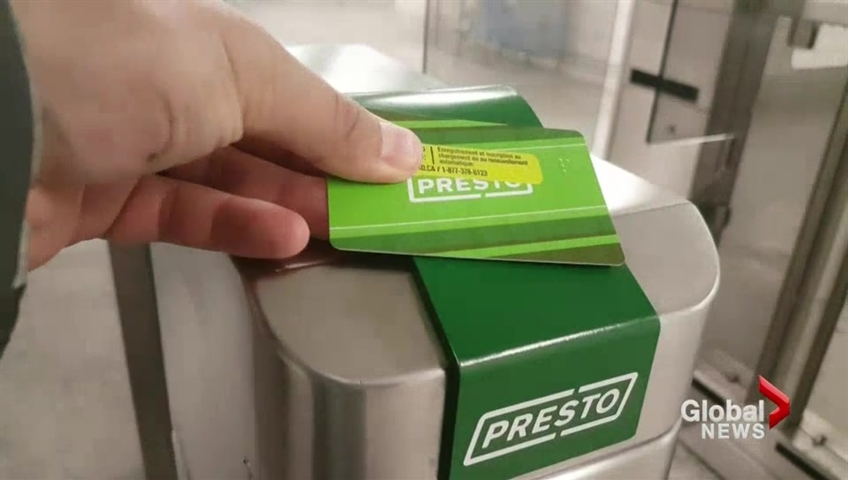Toronto Mayor John Tory, along with TTC Chair Josh Colle and TTC board member Mary Fragedakis, have forwarded a letter to TTC CEO Andy Byford asking him to examine the costs and implications of introducing time-based transfers for transit users.

“We have already committed ourselves to a fare freeze for 2018 but we believe that further steps can, and should, be taken to encourage ridership while making the best and most strategic use of scarce public funds,” the letter wrote.
Transit users currently have to pay an extra fare if they get off the TTC system at any point in their trip and want to get on again.
However, time-based transfers would allow commuters to run errands, for example, within a set time frame without reaching for their wallet a second or third time.
Under the proposal, only PRESTO users would be granted the ability to make such trips.
READ MORE: Time-based TTC transfers better for low-income Torontonians
“We know that PRESTO use is at 14 per cent among TTC customers,” the letter said. “Making time-based transfers available for PRESTO users would have multiple benefits including making transit more affordable, increasing ridership, and encouraging PRESTO adoption.”
Several municipalities in Ontario —including Brampton, Oakville, Mississauga, York Region and Windsor — already use time-based transfers.

Get breaking National news
LISTEN: TTC chair Josh Colle joins The Morning Show on AM640
Time-based transfers would also help in reducing fare evasion, which the letter stated amounts to $15 million annually.
But Byford has said in the past there is a cost associated with time-based transfers, depending on how long the transfer would be, which would cost the TTC between $12 million to $20 million in lost revenue.
VIDEO: Time-based TTC transfers only likely with PRESTO system implementation
There is also a concern of added congestion with the increase in ridership as a result of the transfers.
However, those supporting the plan say the move would make transit more affordable and accessible for low-income people.
READ MORE: Time-based transfers are key to public transit’s success
“For these and other reasons, such as our duty to assist vulnerable populations including seniors, youth and low-income workers through our Poverty Reduction Strategy, to provide access to opportunity for all of our residents and to do everything possible to help our small business community, we believe this is an idea that merits further exploration and we look forward to the results of your analysis,” the letter said.
The letter said it hopes staff will report back on its findings at the TTC Commission’s monthly meeting on Nov. 28.
VIDEO: TTC struggling with growing pains as it implements PRESTO fare card system





Comments
Want to discuss? Please read our Commenting Policy first.